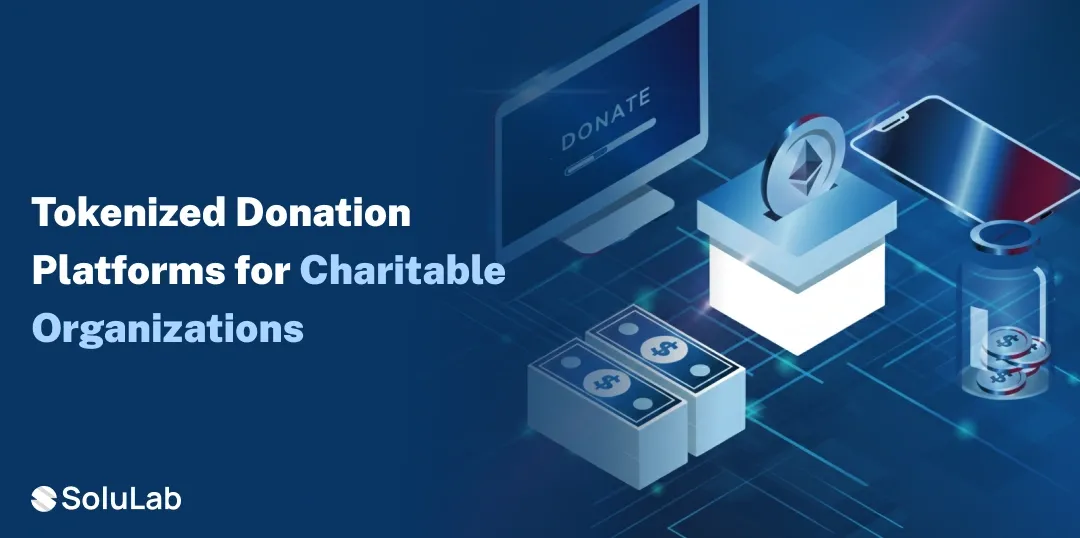
As the popularity of online gaming continues to rise, ensuring the security of financial transactions becomes increasingly important. Players need to trust that their personal and financial information is protected when engaging in virtual gaming environments. This article explores the measures taken to enhance financial security and maintain trust in the industry.
The Significance of Secure Payment Gateways
Secure payment gateways are essential in the online gaming industry, acting as the backbone of financial transactions. These systems ensure that players’ financial data is encrypted and protected from unauthorized access. By using advanced encryption technologies, payment gateways safeguard sensitive information, such as credit card details, during transactions. This level of security is crucial for maintaining player trust and preventing fraud.
In the context of online sweepstakes casinos, secure payment gateways play a pivotal role. They not only facilitate smooth transactions but also help in building a safe gaming environment. Players can engage in gaming activities with confidence, knowing that their financial information is secure. This trust is vital for the growth and sustainability of online gaming platforms.
Modern payment gateways also incorporate sophisticated fraud detection systems that can identify suspicious patterns and unusual transaction behaviors in real-time. These systems utilize artificial intelligence and machine learning algorithms to analyze multiple data points, including transaction history, location data and device information. This multi-layered approach to security helps prevent fraudulent activities before they can impact players’ accounts, creating a more secure gaming environment for all participants.
The integration of tokenization technology represents another significant advancement in payment gateway security. This process replaces sensitive card data with unique identification symbols, maintaining the security of payment information while allowing for seamless transactions. Tokenization not only reduces the risk of data breaches but also simplifies compliance requirements for gaming platforms, as they no longer need to store actual card numbers in their systems. This technology has become particularly valuable for players who make regular deposits, as it provides a secure way to save payment information for future use.
The emergence of mobile payment solutions has further revolutionized secure payment gateways in online gaming. These platforms must now accommodate various mobile wallet services while maintaining rigorous security standards. Advanced API integration allows for a seamless connection with multiple payment providers, offering players greater flexibility without compromising security. Additionally, the implementation of device fingerprinting technology helps identify and authenticate mobile devices, adding another layer of protection for transactions made through smartphones and tablets.
Technological Advancements in Payment Security
The evolution of payment technology has significantly enhanced security measures in virtual gaming platforms. Innovations such as biometric authentication and blockchain technology have introduced new layers of security. Biometric authentication, for instance, uses unique biological traits like fingerprints or facial recognition to verify a player’s identity, reducing the risk of unauthorized access.
Blockchain technology, on the other hand, offers a decentralized approach to transaction verification, ensuring transparency and reducing the likelihood of fraud. These technological advancements not only enhance security but also improve the overall user experience by providing fast and reliable transaction processing. As a player, staying informed about these technologies can help you choose platforms that prioritize your security.
Two-factor authentication (2FA) has emerged as another crucial security enhancement in online gaming platforms. This additional security layer requires players to verify their identity through multiple methods, typically combining something they know (like a password) with something they have (such as a mobile device for receiving verification codes). The implementation of 2FA has significantly reduced unauthorized access attempts and account takeovers, making it an essential feature for any serious gaming platform.
Advanced encryption protocols, particularly the implementation of quantum-resistant cryptography, are becoming increasingly important as computing power continues to evolve. This forward-thinking approach to security ensures that encrypted data remains protected even against future technological threats, including quantum computers. Gaming platforms that invest in these cutting-edge security measures demonstrate their commitment to long-term data protection, giving players confidence that their financial information will remain secure even as technology advances.
The integration of artificial intelligence-driven behavioral analytics has emerged as a game-changing security feature. These systems can learn and adapt to individual player patterns, from typical deposit amounts to preferred gaming times and device usage. When unusual patterns are detected, such as sudden large transactions or logins from unfamiliar locations, the system can automatically trigger additional verification steps or temporarily freeze accounts. This proactive approach to security helps prevent unauthorized access and fraudulent transactions before they occur while maintaining a smooth experience for legitimate players.
Best Practices for Maintaining Security in Online Gaming
To maintain a secure environment in online gaming, operators must adhere to industry best practices. This includes implementing robust encryption methods and complying with regulatory standards such as the Payment Card Industry Data Security Standard (PCI DSS). These measures ensure that financial transactions are conducted securely, protecting both players and operators from potential threats.
Players also have a role to play in maintaining security. By choosing reputable gaming platforms and using secure payment methods, players can minimize the risk of fraud. Additionally, staying informed about the latest security practices and technologies can help players make informed decisions about where to play. This proactive approach contributes to a safer and more enjoyable gaming experience.
Regular security audits and penetration testing have become standard practices for maintaining robust security systems. These assessments help identify potential vulnerabilities before they can be exploited by malicious actors. Gaming platforms that conduct frequent security evaluations can quickly adapt to emerging threats and implement necessary updates to their security protocols. This ongoing commitment to security testing demonstrates a platform’s dedication to protecting its users’ financial interests.
The implementation of real-time monitoring systems has become a crucial component of security best practices. These systems utilize advanced analytics to track transaction patterns and user behavior, enabling immediate detection of suspicious activities. When unusual patterns are detected, automated systems can temporarily suspend transactions and alert security teams for investigation. This proactive approach to security helps prevent fraudulent activities before they can cause significant damage, while machine learning algorithms continuously improve detection accuracy based on new data and emerging threat patterns.
The implementation of automated backup systems and disaster recovery protocols has become essential for maintaining security in online gaming environments. These systems ensure that financial transaction data and player account information are regularly backed up and can be quickly restored in case of system failures or cyber attacks. Gaming platforms now employ redundant server architectures and geographically distributed data centers to maintain service continuity and protect against data loss. This infrastructure investment demonstrates a commitment to maintaining the integrity of financial transactions and protecting player assets even in worst-case scenarios.
Keeping An Eye Out For Potential Scams
Scammers are always on the lookout for unsuspecting victims and the virtual gaming world is no exception. It’s essential for users to be vigilant and recognize red flags that might indicate a scam. Be wary of unsolicited messages claiming you’ve won a prize or offering free coins in exchange for personal information. These are often phishing attempts designed to steal your data. It’s crucial to verify the authenticity of any communication by contacting the gaming platform directly through official channels. Think of scammers as digital pickpockets; staying alert and cautious can help you avoid falling prey to their tricks. By maintaining a healthy dose of skepticism and double-checking any suspicious offers, users can better protect themselves from potential scams.
The Role of Regulatory Compliance in Enhancing Security
Regulatory compliance is a cornerstone of financial security in the online gaming industry. Adhering to established standards and regulations ensures that gaming platforms operate within a framework that prioritizes player safety. Compliance with regulations such as PCI DSS demonstrates a commitment to protecting sensitive information and maintaining the integrity of financial transactions.
For players, understanding the importance of regulatory compliance can help in identifying trustworthy platforms. Reputable gaming sites will often display certifications or badges indicating their adherence to industry standards. By choosing platforms that comply with regulations, players can enjoy a secure gaming experience, knowing that their financial information is protected.
International regulatory cooperation has become increasingly important in maintaining security across borders. As online gaming platforms often operate globally, coordination between regulatory bodies in different jurisdictions helps ensure consistent security standards and effective enforcement of protective measures. This international collaboration has led to the development of unified security protocols and shared databases of known security threats, creating a more robust and standardized approach to player protection across different regions and platforms.
Other Security Protocols
The evolution of data privacy regulations, such as GDPR and similar frameworks, has significantly impacted security protocols in online gaming. Gaming platforms must now implement sophisticated data management systems that not only protect player information but also provide transparency about how data is collected, stored and used. This includes maintaining detailed audit trails of data access, implementing strict data retention policies, and providing players with tools to control their personal information. These requirements have led to the development of more robust security infrastructures that benefit both operators and players by establishing clear guidelines for data protection and privacy rights.
The implementation of Know Your Customer (KYC) and Anti-Money Laundering (AML) protocols has become increasingly important in regulatory compliance. These measures require gaming platforms to verify the identity of their users and monitor transactions for suspicious activities. While some players might view these requirements as cumbersome, they play a vital role in preventing financial crimes and ensuring the legitimacy of gaming operations. Platforms that maintain strict KYC and AML policies demonstrate their commitment to operating within legal frameworks and protecting their users.
Conclusion
In the ever-evolving world of virtual gaming, financial security remains a top priority for both users and platforms. Secure payment gateways, technological advancements and regulatory compliance all play critical roles in enhancing security measures. Users, too, must remain vigilant and adopt best practices to protect themselves from potential scams and threats. As gaming environments continue to innovate, the collaboration between users and platforms in maintaining security will be pivotal in creating a safe and enjoyable experience for all. By staying informed and proactive, users can confidently navigate the virtual gaming world, knowing that their financial and personal information is well-protected.





